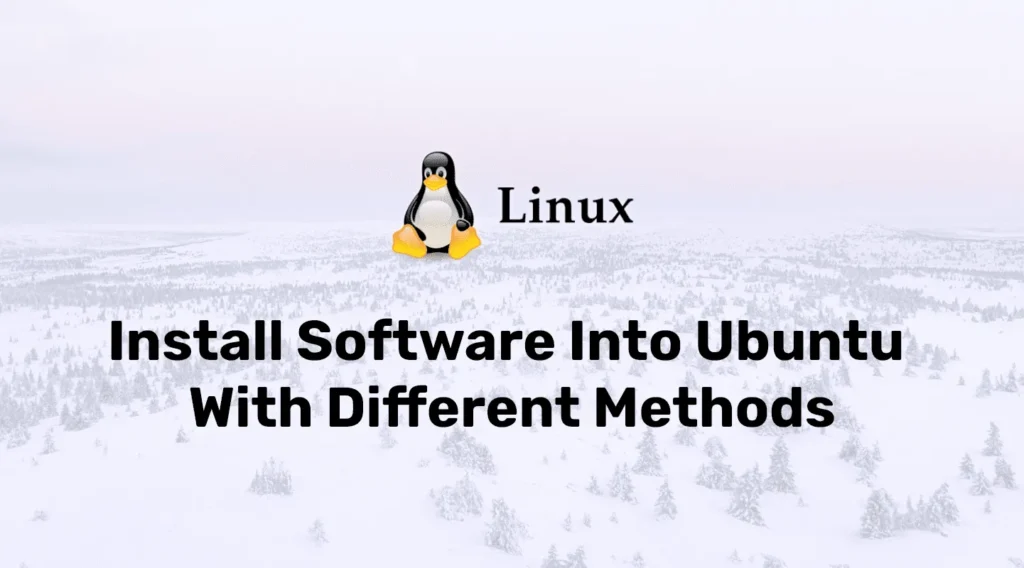When you are a newbie to the Linux operating system then it’s common to face questions like how to install applications or software to Ubuntu or any other Debian-based distros. When it comes to installing software on Ubuntu, you are not restricted to one method. There are plenty of ways of installing software on your Linux system including compiling the software code yourself.
In this blog, we will cover most of the software installation methods that you can use.
Ubuntu software center
Most people think Linux is only for geeks. who knows how to use a terminal or enter a bunch of commands. But not anymore, nowadays most of the operations you can perform on GUI.
Linux Software Center is just like the App Store or Play Store on mobile. Where you simply search application then open a specific application form listing and install it using clicks.
Installing software in the Ubuntu software center is simple. Select the package you wish to install then click the install button.
Apt
APT is short for Advanced Package Tool, it is not just a package installer, it is a fully-fledged package manager. You can use APT to install, update, remove, and even search for software packages, etc.
In Ubuntu, the most common and simple method to download software is using the apt package manager tool. Sometimes some applications are not available at the Ubuntu software center but you can still download them using apt.
The apt is like other Linux commands. While we are performing install and uninstall it requires superuser permission to perform a task.
To install :
sudo apt install nanoTo uninstall software:
sudo apt-get remove nanoDownloadable packages
Another common method to install a package is via downloading the .deb package. First of all, you download files from the source server and then manually install them.
You can install those files using various methods like below
- Install using APT
- Install using dpkg
- Install using GUI
Install using APT
After downloading you can simply install it via the APT command-line tool. First of all, you need to navigate to that directory in the terminal and then enter the below command to start installation :
sudo apt install ./package_name.debInstall using dpkg
Dpkg is the core software package tool on Debian-based Linux distros. Installing packages via dpkg is very simple and follows the following format.
sudo dpkg -i ./package_name.debInstall using GUI
Just like Windows .exe, you can install .deb software packages, simply by double-clicking the .deb file. It will open the file in the Ubuntu software center and then you just click install from the GUI menu and it will install a particular package into the system.
Once you’ve installed the software, you’re free to delete the downloaded .deb file.
Compiling source code
Linux provides you with all the necessary tools required to compile, build, and install software from the source code. But you’ll need other packages such as curl and gettext. Depending on your Linux distro.
To install those packages you can use below single command :
sudo apt install libz-dev libssl-dev libcurl4-gnutls-dev libexpat1-dev gettext cmake gcc curlAfter installing these packages go to your download location and check for the configure file. The configure file checks for software dependencies for the package you want to compile, and you’ll see an error message some dependencies are missing.
Configure and prepare your source code by executing the script. The command will create files and configurations for the software that you are about to compile and install.
./configureNow source code is configured and compiled. You can build an application with the below command :
makeThis command will create files that contain steps to build software.
At last, we will install our software using the make install command.
sudo make installIt will install software to your system. Now you can run newly installed software as per requirement.
Conclusion
In this blog, we have looked at five different methods to install any software into Ubuntu or any other Debian-based Linux distribution except the Ubuntu software center.
For developers looking to boost productivity on Ubuntu, How to Install Visual Studio Code in Ubuntu shows you step-by-step how to set up and configure VS Code for smooth coding workflows.

